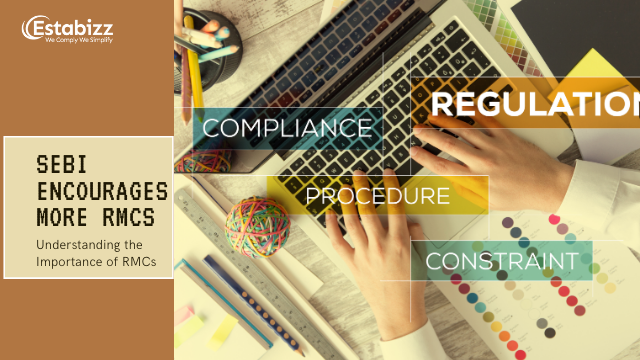Enhanced Risk Management in the Corporate Sphere: SEBI’s Push for More RMCs
Introduction
Mumbai – To enhance corporate governance, the Securities and Exchange Board of India (SEBI) aims to mandate risk management committees (RMCs) for the top 2,000 listed companies. This follows SEBI’s 2020 directive requiring the top 1,000 companies to establish RMCs. This shift will significantly increase the demand for risk managers within India Inc.
To better understand this, Mint engaged with consultants and compliance experts who noted that organizations are expanding their RMC teams to include auditors, cybersecurity experts, and geopolitical analysts.

Role and Importance of Risk Management Committees
RMCs focus on identifying, assessing, and mitigating risks that may impact the organization. Unlike crisis management teams, which respond post-crisis, RMCs are preventive by nature.
Key Responsibilities of RMCs:
- Risk Identification: Proactively recognizing potential risks.
- Risk Evaluation: Assessing the impact and likelihood of identified risks.
- Risk Mitigation: Developing strategies to manage and reduce risks.

SEBI’s Consultation Paper and Recommendations
On June 26, SEBI released a consultation paper seeking feedback on recommendations from an expert committee. The recommendations propose amendments to SEBI’s Listing Obligations and Disclosure Requirements (LODR) regulations, emphasizing strengthening corporate governance by extending the RMC requirement to the top 2,000 listed entities.
Broadening Regulatory Oversight
Consulting firms appreciate SEBI’s approach, viewing it as a comprehensive regulatory shift toward enhanced scrutiny of corporate operations and governance.
Cost Implications and Long-term Benefits
Although there are cost implications, experts unanimously agree that the benefits far surpass the expenses.
Cost Implications:
- Committee Member Fees: Additional costs primarily come from fees for committee members.
Long-term Benefits:
- Enhanced Risk Awareness: Promotes a culture where risk management is integral.
- Regulatory Compliance: Ensures companies stay compliant, avoiding penalties.
- Stronger Governance: Elevates the profile of RMCs to the level of audit committees.
Geopolitical Risk Management
Geopolitical risks, including wars and international conflicts, can significantly disrupt businesses. SEBI’s initiative also aligns with the need for better geopolitical risk management to navigate the complexities of the global business environment.
Examples of Geopolitical Risks:
- Direct Impact: Construction contracts in conflict zones becoming unviable.
- Indirect Impact: Airline routes affected by geopolitical tensions or visa restrictions.
Expert Insights on RMCs and Geopolitical Management
Prominent figures in risk consulting have offered their insights, emphasizing the evolving landscape of risk management.
- Siddharth Vishwanath (PwC India) highlights the increasing regulatory scrutiny and cost of non-compliance.
- Ketan Dalal (Katalyst Advisors) stresses the necessity of prioritizing geopolitical risk to manage supply chain disruptions and other impacts.
- Purvi Mathur (KP Associates) underscores the importance of integrating geopolitical risk management into corporate governance structures to safeguard long-term shareholder value.
Recommendations for Specific Industries
Consultants suggest targeting specific industries within the 1,000 to 2,000 range for mandatory RMCs based on factors such as:
- Environmental Impact
- Data Privacy Concerns
- Affiliation with Larger Corporate Groups
- Participation in Critical Supply Chains
Emerging Trends in Risk Management
Recent trends highlight the importance of specialized expertise in risk management. Companies increasingly seek professionals from diverse backgrounds, including technology institutes and former defense personnel, to enhance their risk management capabilities.
Notable Trends:
- Sector-Specific Expertise: Migration of industry executives to consultancy roles.
- Specialized Risk Managers: Increasing reliance on experts for industries like financial services and pharmaceuticals.
SEBI’s push for mandating RMCs in the top 2,000 listed companies marks a significant step towards strengthening corporate governance in India. While there are cost implications, the long-term benefits of enhanced risk awareness and compliance are evident.
Ongoing Developments and Future Directions
Potential Future Mandates
In alignment with SEBI’s proactive approach, there are discussions about extending the requirements of RMCs beyond the top 2,000 listed companies to encompass smaller entities as well. This extension aims to:
- Broaden Risk Management Practices: Ensuring even smaller companies adopt robust risk assessment and mitigation strategies.
- Enhance Corporate Governance Standards: Improving the overall transparency and reliability of corporate operations across the board.
- Prepare for Volatile Market Conditions: Assisting companies to be better prepared for market volatilities and external shocks.
International Best Practices
As a globally-minded entity, Estabizz Fintech understands the importance of leveraging international best practices in risk management. RMCs in global corporations often follow stringent frameworks that could serve as benchmarks:
- COSO Framework: Widely adopted internationally, focusing on enterprise risk management.
- ISO 31000: A standard providing guidelines on risk management principles and implementation.
By aligning with these frameworks, Indian companies can elevate their risk management practices to global standards, ensuring competitive advantage and resilience.
Training and Development Programs
An essential aspect of effective risk management is continuous education and training. Estabizz Fintech advocates for comprehensive training programs for RMC members and other stakeholders. Suggested programs include:
- Risk Management Certifications: Providing certifications such as Certified Risk Management Professional (CRMP) and Financial Risk Manager (FRM).
- Workshops and Seminars: Regularly conducting expert-led workshops to stay updated on emerging risks and mitigation strategies.
Leveraging Technology in Risk Management
Integrating technology into risk management processes can significantly enhance efficiency and accuracy. Key technological tools include:
- Risk Management Information Systems (RMIS): Facilitates the systematic recording, analysis, and management of risk data.
- Artificial Intelligence and Machine Learning: Leveraging AI/ML for predictive analytics and risk identification.
- Cybersecurity Measures: Implementing advanced cybersecurity protocols to safeguard against digital threats.
Local Expertise with Global Reach
Estabizz Fintech prides itself on providing local expertise while leveraging a global perspective. Our presence in numerous countries around the world ensures that we understand and can navigate various regulatory landscapes, providing customized solutions that meet local and international compliance standards.
Estabizz Fintech compiled the material in this article using the most recent Acts, Rules, Circulars, Notifications, Provisions, Press Releases, and material applicable at the time. They ensured the completeness and correctness of the material through due diligence. When using this material, users must consult the relevant, applicable legislation. The given data may change without prior notice and does not constitute professional advice. Estabizz Fintech disclaims all liability for any results from the use of this material.




